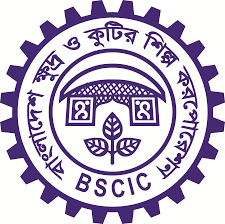BSCIC probing graft allegation in setting up Savar CETP

The government is investigating whether any corruption took place in the installation of the central effluent treatment plant at the Savar tannery estate, the industries secretary said yesterday.
Md Abdul Halim said many quarters have alleged that corruption had taken place in the installation of the CETP at the Savar Tannery Industrial Estate (STIE).
“But the complaints need to be investigated,” he said.
The state-run Bangladesh Small and Cottage Industries Corporation (BSCIC) is looking into the corruption allegations. The STIE is an entity of the BSCIC, an affiliated body under the industries ministry.
Many have complained that the Chinese firm, which is installing the CETP, has used 18-inch diameter pipes instead of 38-inch diameter pipes stated in contract papers. Currently, the BSCIC is conducting an investigation, particularly, about the pipe installation, Halim said.
The comments from the secretary came at a workshop on problems and prospects in the leather and leather goods sector at Economic Reporters’ Forum (ERF) in Dhaka.
Halim said the BSCIC did not receive 18 containers from the importing company only because the equipment and materials for the CETP were not brought in as per recommendations of the experts.
“We are in discussion with the Chinese firm to find out why it imported the items that were not suggested by the experts,” said Halim.
Bangladesh hasn’t been able to obtain the very vital Leather Working Group (LWG) certification because of poor compliance at the STIE and by tanneries housed at the estate, although the government has spent more than Tk 792 crore for installing the CETP, sludge management and for some other purposes at the estate since 2012.
Sometimes, tanners release untreated water into the nearby river, polluting it.
The secretary, however, is hopeful that the CETP will be fully functional before the visit of a team of the LWG to the STIE at the end of the current month.
Bangladesh is failing to avail international rates for the sale of leather and leather goods as the country is yet to receive the certification.
Local tanners and leather goods manufacturers sell goods at more than 40 percent below international rates to some non-compliant Chinese buyers. They can’t export goods to European countries, the US and some developed nations as they follow compliance strictly.
What is more, local manufacturers use imported leather to make leather and leather goods for European and American buyers.
Because of the installation of low quality technologies at the STIE and tanneries, Bangladeshi factories consume the highest amount of ground water to wash rawhides.
Local tanneries use more than 66 tonnes of water to treat one tonne of rawhide whereas it is 25 tonnes as per international standard and 30 tonnes as per Bangladeshi standard.
In order to obtain the LWG certification, the consumption of water has to be brought down to international level.
Bangladesh produces nearly 400 million square feet of rawhide every year, of which local leather and footwear companies consume 30 million square feet. Leather goods and footwear companies import 20 lakh square feet high-quality leather to make exportable goods.
Nurul Majid Mahmud Humayun, industries minister, Kamal Ahmed Mojumder, state minister for industries, Shaheen Ahmed, president of the Bangladesh Tanners Association, Saiful Islam Dilal, president of the ERF, and SM Rashidul Islam, general secretary, also spoke.
